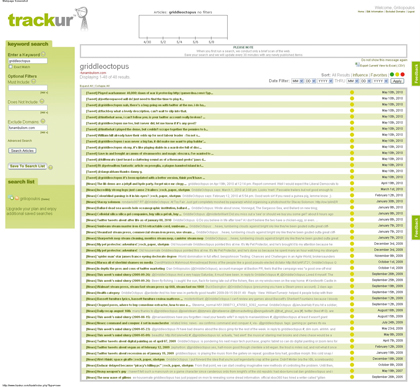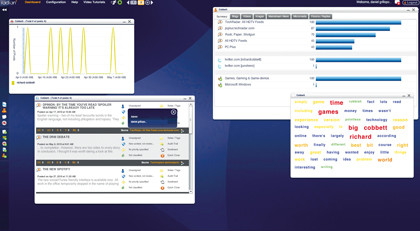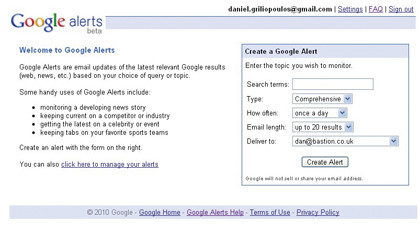
You might not realise it yet, but you're a brand. All this time you've been walking and talking and posting on the internet, thinking you were a person, when you've been a brand all along. Who'd have thought it?
All of your activities have been contributing to the brand, building a profile for it and even advertising it.
Why is it important to think of yourself as a brand? Because as information about individuals becomes increasingly available online, you want to make sure that information is not only accurate but also positive and succinct.
For example, this weekend I arrived early to meet a friend at his friend's house. I didn't know this friend of a friend, so on my way there I Googled him. I found that I was already following him on Twitter and discovered his blog, the company he worked for, his Facebook page, his Flickr account and so on. In 10 minutes, I thought I had a pretty good profile of his interests (cats, anime, politics) and personality (funny, busybody).
However, if I'd been really committed, I could have found all sorts of information. Deep Googling of my own name threw up fan-fiction from a magazine forum I used to work on, as well as some gadget fanboys threatening violence against my person for underscoring one of their preferred devices five years ago.
It wouldn't be good for a future employer to see that as one of my main hits, but thanks to good profile management and search engine optimisation, it's buried deep in Google's archive.
What differentiates your brand from you, the person? Well, everything you do as a person can contribute to the brand, but it shouldn't necessarily. Many other people can contribute to the brand, too – sometimes unconsciously, sometimes negatively.
Sign up for breaking news, reviews, opinion, top tech deals, and more.
All the data and media that we're generating and adding to the internet and social networks is part of this database, and additions are increasingly automated (location tracking on Latitude or Gowalla, media tracking on LibraryThing, LoveFilm or Raptr) so there's a need for effective filters to reveal where important events have occurred and manage their impact.
Media and social monitoring is about tracking any brand across all media. Simply put, it's about making sure you hear everything important that people are saying about your brand, and filtering out the noise, the incorrect results and the homonyms so you can reach out to the positive and negative people out there – to reward the friendly and correct the unfriendly.

It can vary from simple, free tools such as Google Alerts to complicated expensive tools such as Radian6.
Egosurfing – the act of searching for your own name – is therefore little different to standard media monitoring. The only real difference is your lack of resources – most of us aren't going to spend our entire salary on a Nielsen BuzzMetrics subscription. Nor are we going to have the time or the staff to set up and maintain a complicated monitoring tool. We just need something quick and dirty to sort the wheat from the chaff.
Taking this into consideration, we've picked four products that enable you to track your online profile. We've had Radian6 recommended to us by no less than Microsoft's Internet Marketing department, so we've included it here even though it's high-end stuff.
Google Alerts is a no-brainer because it's free and simple. Finally, Social Mention and Trackur offer easy social media monitoring. There are several tools we would have liked to examine, but which were too niche for our deliberately wide-ranging test.
Technorati is an older tool that only rates blogs and uses a fairly arbitrary metric. Blog Pulse is similarly blog-focused, but more up-to-date. Board Reader, as you might guess, tracks message boards and forums. Scoutlabs and SM2 are similar to Radian6, but Scoutlabs is cheaper and lighter on features, whereas SM2 is more useful for PR and marketing. AlertRank sorts your Google Alerts for you and is also free, so we've included it under Google Alerts.

Almost all of these, and the products on test, output RSS feeds. Put these into a feed reader and you've got a bespoke social media tracker – if you're willing to take the time to configure it.
Finding your brand online is only the first step. Next you need to ensure that the results that come top are positive, that your own content comes first and that you have procedures in place to deal with crises or negative feedback. Profile management is just starting to grow in importance. It can't be long before a standardised metric is accepted by social media experts and, more importantly, HR departments, meaning that personal profile monitoring will be key to job applications.
Now is a good time to start shaping your profile so you can become the brand you want to be.
- 1
- 2
Current page: Tracking your online profile: why it matters
Next Page Tracking your online profile: the tools